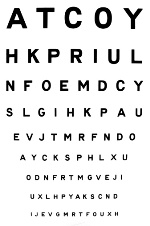 While a decline in eyesight may seem inevitable with age, there are steps you can take to preserve your vision. Recent advances in the science of nutrition and vision have indicated that adding carotenoids—particularly lutein and zeaxanthin—to your diet can have positive benefits. Those two carotenoids in combination have been shown to play a role in the prevention of age-related macular degeneration (AMD).
While a decline in eyesight may seem inevitable with age, there are steps you can take to preserve your vision. Recent advances in the science of nutrition and vision have indicated that adding carotenoids—particularly lutein and zeaxanthin—to your diet can have positive benefits. Those two carotenoids in combination have been shown to play a role in the prevention of age-related macular degeneration (AMD).
AMD is a progressive disease that attacks the retina. There are two types of AMD—early (or dry) and late (or wet). Dry AMD is the more common of the two conditions, and is generally considered the milder form. Wet AMD is usually more severe. Sometimes, wet AMD can cause a person to suddenly lose vision in the area right in front of them—a very alarming and distressing symptom that can be difficult to treat.
But, there’s some good health news: lutein and zeaxanthin may be able to help protect against the progression of wet AMD. Researchers at Peking University recently noted that lutein and zeaxanthin have long been thought to decrease the incidence of AMD, but that clinical findings so far had been inconsistent. To find a more definitive answer, they conducted a review and analysis to evaluate the relationship between dietary intake of lutein and zeaxanthin, and AMD risk.
Eventually, six studies were found that met the strict inclusion criteria of the research team. Although the researchers found that there was no significant association between lutein and zeaxanthin intake and dry AMD risk, results for wet AMD were much more conclusive. Dietary intake of these carotenoids was significantly related with a reduction in risk of wet AMD.
A number of foods—including eggs, spinach, goji berries (also known as wolfberries), kale, turnip greens, collard greens, romaine lettuce, broccoli, zucchini, kiwifruit, corn, garden peas, Swiss chard, and Brussels sprouts—are considered good sources of lutein and zeaxanthin.
Sources for Today’s Articles:
Protect Your Vision with these Two Nutrients
Ma, L., et al., “Lutein and zeaxanthin intake and the risk of age-related macular degeneration: a systematic review and meta-analysis,” Br. J. Nutr. February 2012; 107(3): 350-9.
